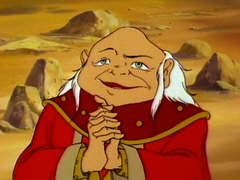So what is the essence of what makes D&D fun?
So my question to you, EN Worlders, is what are those intangibles that made those crazy game moments possible and how can we bring those elements back into D&D, whether you are playing Pathfinder or 4e?
Anything else? Has anyone else had the same experience as me? How did you bring the magic of old school gaming back while playing with a modern ruleset? What are those intangible qualities that made your most memorable sessions so memorable and fun?
Seems to me that your title question, and all these questions, are not all asking the same thing.
I don't think the intangibles, the essence that makes D&D fun, sits in a particular "school". I don't even think it sits in a particular game - not even in D&D itself!
The things that make the game fun are sitting around the table with me when we play. The really good bits come from the other players, not from the rules.



